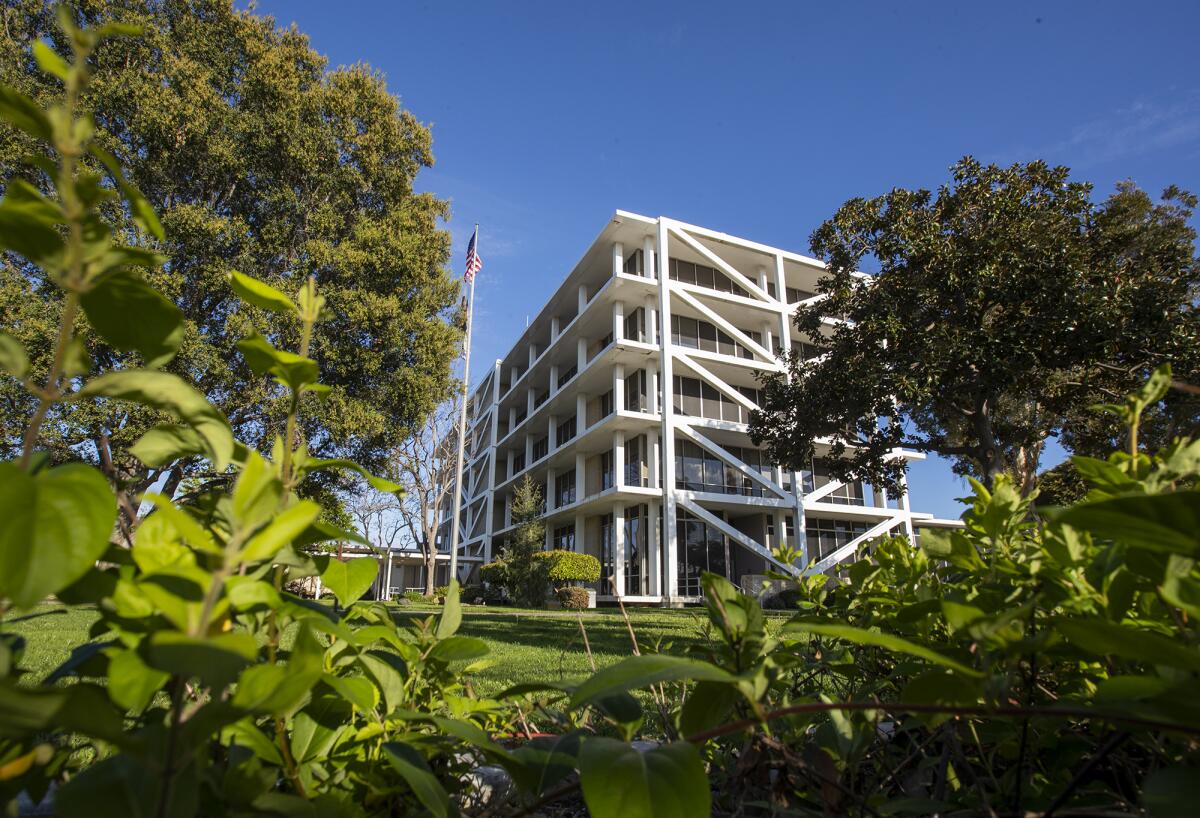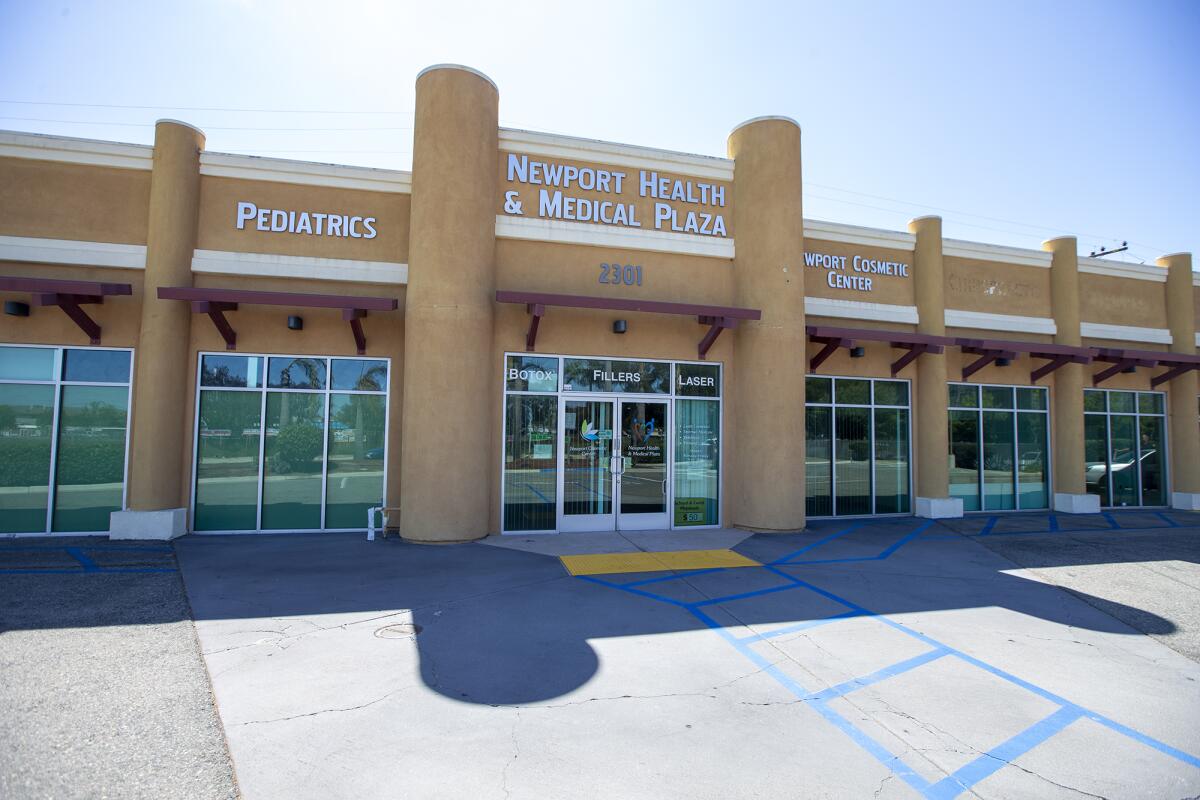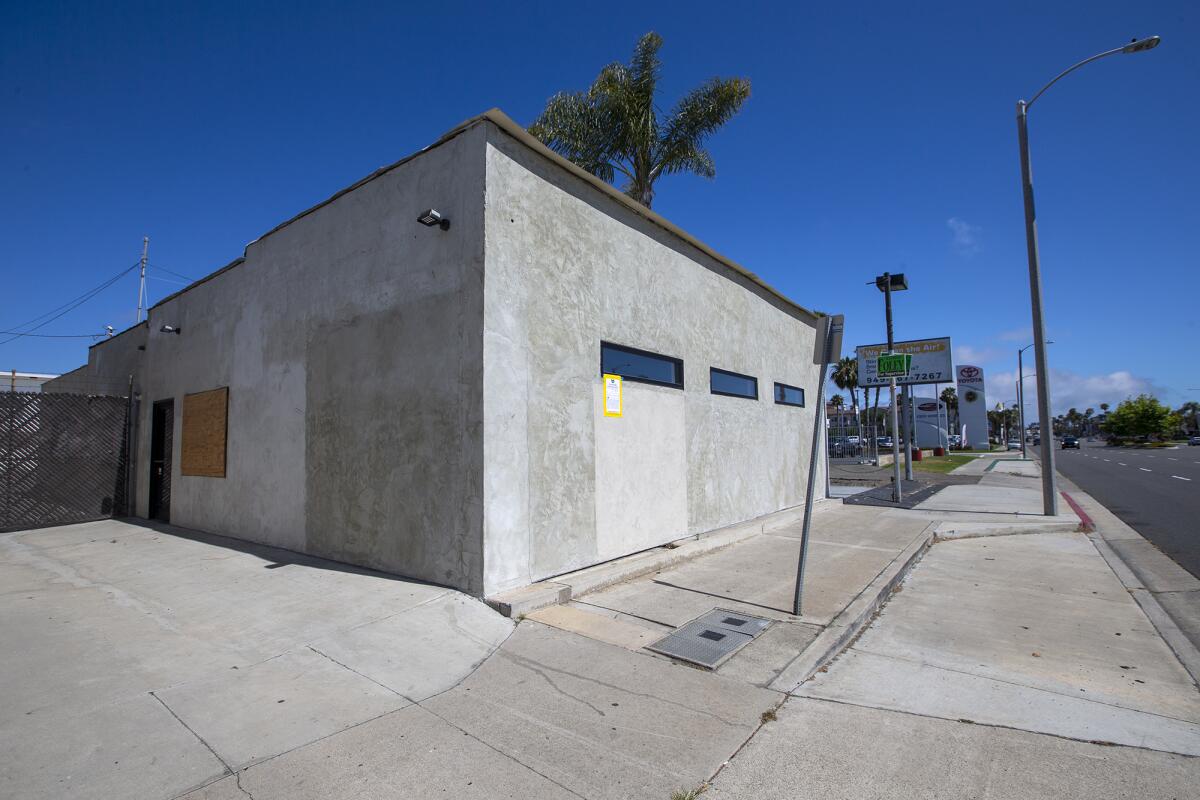Costa Mesa dispenses first permits for legal pot shops on Harbor, Newport boulevards

The vision of Costa Mesa as a place where cannabis purveyors may do legal business became clearer this week, as members of the Planning Commission approved two conditional use permits for dispensaries on Harbor and Newport boulevards.
Applicants representing Culture Cannabis Club and 420 Central Newport Mesa visited City Hall Monday to plead their cases and field commissioner’s questions regarding security, lighting and traffic flow around the proposed businesses.
Although city officials have previously approved non-storefront cannabis delivery businesses — primarily proposed by companies already distributing, manufacturing and testing marijuana in Costa Mesa’s industrial “Green Zone” — Monday’s actions mark the first approvals for retail dispensaries under Measure Q, passed by voters in 2020.
More than 50 retail applications remain to be reviewed by the commission, whose meetings provide the only opportunity for the public to weigh in on such proposals. And while there’s no cap on the number of dispensaries that can operate inside city limits, the threshold for getting a pot shop approved is high.
Applicants must demonstrate financial solvency, submit to background checks and outline security measures that will be taken on the commercial properties, said planner Michelle Halligan. In addition to more than 50 standard conditions of approval, each applicant amasses another 10 to 12 other conditions specific to the proposed site.
Culture Cannabis Club

Proposed for a half-acre commercial lot at 2301 Newport Blvd., Culture Cannabis Club would occupy a 3,600-square-foot building abutting a multiple-tenant office space, post office and automotive business. It would include 23 parking stalls and three loading areas.
Chief Executive Devon Julian told commissioners that along with more than 30 bank-level security cameras on site, an armed security guard would monitor the property 24 hours a day. Extra guards and a parking lot attendant would provide additional assistance in the business’ first few months.
“We do anticipate a spike in traffic, being one of the first [dispensaries],” Julian said, “but I’d imagine the demand will go down as additional applicants are approved.”
The company will renovate the exterior of the building, a former medical plaza, and upgrade landscaping and create a gateway at the front of the property.
Inside, no marijuana would be within reach of customers, who could learn about items from reading display packaging and place orders via touchscreen monitors before picking up their goods at a point-of-sale area. Julian estimated the business would generate $300,840 in tax revenue in its first year.
Commission Chair Byron de Arakal said he’d prefer to see retail cannabis applicants submit lighting plans, so officials could ensure the safety of the site before approval, and the ask became one more condition. Costa Mesa Police Chief Ron Lawrence said his department met with cities where dispensaries are allowed and learned the businesses have mostly improved surrounding neighborhoods.
“Oftentimes, you have properties that are dilapidated, run-down or they’re an attractive nuisance, and businesses like these come and build them up and fix them and make them better,” Lawrence said, before commissioners approved the project 7-0.
420 Central Newport Mesa

Commissioners also considered 420 Central Newport Mesa, a shop proposed for a commercial lot at 1990 Harbor Blvd. designated “existing nonconforming,” meaning its setbacks and specifications do not comply with development standards.
While the site contains two buildings, a structure at the back of the property would be demolished to accommodate parking, leaving a 2,446-square-foot main building that would be reoriented to include a rear entrance.
Halligan said the lot would comprise 10 parking stalls and a narrow driveway that allows for only one lane of vehicle traffic at a time. As such, owners plan to initially employ a parking lot attendant to direct traffic to and from the site.
Commissioners Adam Ereth and Jimmy Vivar expressed concern about traffic and safety, particularly that of pedestrians and bicyclists interfacing with customers’ vehicles.
“With the ingress and egress, can you say with relative absolute certainty this isn’t creating more of a potential for traffic-related issues?” Ereth posed.
Vice Chair Jon Zich said the property’s nonconforming status presents difficulties the city has no choice but to deal with.
“The alleyway is narrow — none of us like it,” he said. “But to say this wouldn’t be approved because we don’t like how narrow the alley would be essentially saying we would not approve any business of any type because they’d have exactly the same issue.”
Commissioners voted 5-2 to approve the permit, with Ereth and Vivar opposed.
Chair de Arakal acknowledged the city’s process for developing regulations and getting the first permits approved has been slow but said he’s excited by the progress.
“I’m looking forward to seeing how it unfolds,” he said. “You’re the first ones — go get ’em!”
All the latest on Orange County from Orange County.
Get our free TimesOC newsletter.
You may occasionally receive promotional content from the Daily Pilot.




